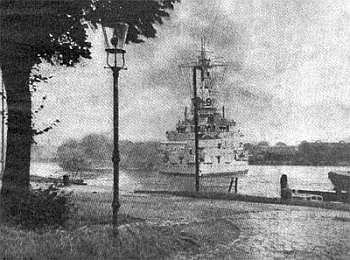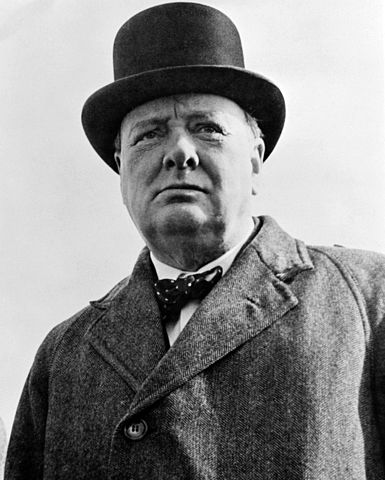It is seventy five years this week since Adolf Hitler and his Nazi regime put Europe to the torch. A moment that – certainly here in New Zealand – risks being lost against the public profile of the First World War centenary.

In a narrative sense, the Second World War began on 1 September 1939 in Danzig harbour when the pre-dreadnought Schleswig-Holstein – then on a port visit – opened fire on the Polish barracks at Westerplatte. By 4 September, Germany was at war with Britain, most of her Empire,and France. The conflict did not end, for Europe, until the Red flag flew over Hitler’s chancellery in Berlin, nearly six years later. By then, seventy million people were dead.
It was a terrible cost. And yet we have to ask what would have happened had Europe’s democracies not stood up? If they had carried on with the ‘appeasement’ policy of the late 1930s that allowed Hitler to seize large parts of Europe, apparently with impunity. Today we live in a world dominated by democracies; but the survival of democracy as the leading world political system was by no means a foregone outcome in the late 1930s. Back then the three big democracies – Britain, France and the US – were still staggering to their feet after a deep depression. The US was staunchly isolationist; and democracy as a system was apparently a declining force in a world where the rising powers were the fascist ‘new order’ of Germany and Italy and the Communist but equally totalitarian Soviet Union. There was little difference between these two systems – police states that worked by repression, suffering and by targeting whole groups of their own populations for institutionalised murder.
Of the two, the Nazis were judged the greater danger from the western perspective, because Germany already had a two-generation long history of world ambition. That was what the First World War had been all about – Hitler merely renewed the push, adding totalitarianism to the mix. It is unlikely Hitler’s regime was stable enough to have survived his intended ‘thousand years’, but certainly the world would have had several miserable generations of Nazi hegemony – directly, for those unlucky enough to be in Europe and places like Ukraine, and indirectly, for most of the rest of the world, probably via economic levers. How long would the main democracies have survived as an effective system in a world dominated by totalitarianism? Would the democracies have been in a position to pick up the pieces when the Nazi regime eventually collapsed – or would some new dark power instead arise to fill the gap?

That was why Britain and France took a stand when Hitler threatened Poland. That was why, when Britain faced its ‘darkest hour’ in mid-1940, Winston Churchill insisted that there could be no backing down. As a historian, he knew the score – knew the ‘monstrous tyranny’ had to be stopped, ‘whatever the cost may be’, even if Britain had to do so alone – lest the world fall into what he called the ‘abyss of a new Dark Age’. The Nazis, as he well understood, were evil – evil in the truest sense, because they were rational, coldly logical, and calculating about it. And Churchill knew that, at the very least, that cost of stopping that evil would likely be Britain’s Empire. He knew India would go. But it was a price to be paid if the world was to be saved.
A justified war, then, insofar as war can ever be justified.
Right now, the anniversary of its beginning runs the risk of being swamped by the attention currently being paid to the First World War, a century ago.
Yet – if we step back and take the long view of history – actually it doesn’t. For the Second World War did not really begin in September 1939.
That was when the fighting started, sure – but as always, history runs deeper than the surface narrative. The reality is that the Second World War was not an isolated struggle. It was the second act of the struggle that began in 1914 – the First World War. Indeed, from this ‘long view’ there were not two wars; there was but one, two acts of unbelievable violence separated by an uneasy twenty-year interregnum.
I’ll explain. Next week. Watch this space.
Copyright © Matthew Wright 2014
Great post and so well written. Enlightening, powerful and important never to forget. Thank you, Matthew!
LikeLike
Thank you! This anniversary needs remembering. What we don’t often realise is that our world as we know it today was not predestined. As late as 1942, by some arguments I have seen, the war remained in the balance with odds on for an Axis victory. Luckily for us, the balance went the way of the Allies. But it was not automatic.
LikeLiked by 1 person
Reblogged this on quirkywritingcorner and commented:
Quite interesting
LikeLike